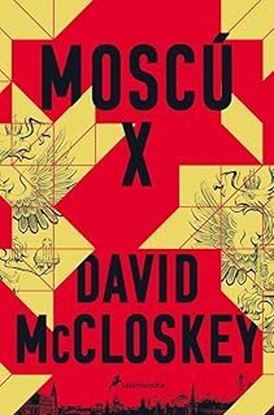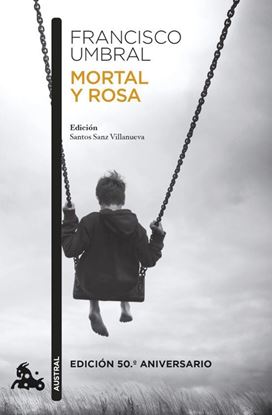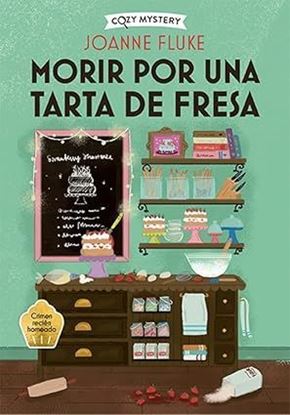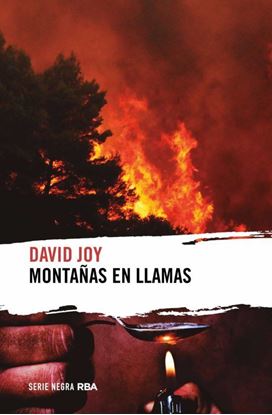

MOSCU X
Sia Fox, agente, y Max Castillo, colaborador de la CIA, se unen para emprender una peligrosa operación de espionaje que involucra a oligarcas, políticos y mafiosos rusos. Ella está infiltrada en un bufete de abogados londinense que se dedica a ocultar grandes fortunas; él es un próspero terrateniente mexicano, dueño de un criadero de purasangres y heredero de una familia vinculada con la Agencia desde los sesenta. Fingiendo ser pareja, ponen en su punto de mira a Vadim, banquero de Putin, y a su esposa Anna, que trabaja para la inteligencia rusa en el banco de su padre. Pero Anna es también un espíritu rebelde, una mujer que lucha, odia y ama. A medida que Sia y Max se adentran en un círculo rebosante de lujo, intrigas y delitos, su única esperanza puede ser ella, quien está jugando su propia partida.
1,400
1,050
MORTAL Y ROSA (EDICION 50 ANIVERSARIO)
En Mortal y rosa, sobrecogedora y tierna elegía de la infancia, Francisco Umbral evoca la muerte de su hijo. Desde la inhóspita revelación de la pérdida, el escritor construye un largo monólogo en que la muerte actúa como coartada maravillosa que convierte su pesadilla humana en una fuerza catártica y liberadora. Francisco Umbral procura el reencuentro en la evocación, y cada sensación es un continuo superar la existencia inerte, cada objeto, una excusa para la reflexión: «sillas de paja infantil, graves mecedoras, caballos de crin celeste me preguntan por ti, se preguntan por ti». Con «esta corporeidad mortal y rosa / donde el amor inventa su infinito» —verso de Pedro Salinas que preludia el texto—, el escritor aborda una cantata de belleza y originalidad máximas, que desborda todos los rencores, porque, como señala en una frase que bien pudiera glosar la obra, «el hijo es un relámpago de futuro que nos deslumbra. Por él, por mi hijo, he visto más allá, más adentro, y más lejos, y quizás, ay, eso basta».
950
713
MORIR POR UNA TARTA DE FRESA
Harinas Hartland va a celebrar su primer concurso de repostería en Lake Eden y Hannah, propietaria de The Cookie Jar, es elegida para ser la presidenta del jurado. Además, tendrá ocasión de cocinar en el certamen y presentar su famosa tarta de fresa Swensen. El único que puede amargarle la experiencia es Boyd Watson, el arrogante entrenador de baloncesto del instituto y también jurado. Pero tras la primera jornada del concurso, Boyd aparece muerto, y su mujer, Danielle, es la principal sospechosa. Pese a las advertencias de Mike, el jefe de policía, de no entrometerse, Hannah arrastrará a su hermana Andrea en sus pesquisas para demostrar la inocencia de su amiga y descubrir el pastel.
800
600
MOON TIGER
Desde la cama de un hospital londinense, Claudia Hampton, célebre historiadora, periodista y cronista bélica, decide escribir una historia del mundo. Lo que aflora, sin embargo, es la historia secreta de su propia vida. Una vida indómita, contradictoria, voraz. Un mosaico de la memoria que se desgrana en teselas. De la infancia bajo la sombra de un hermano brillante y opresivo a los días abrasados por el desierto egipcio durante la guerra, de un amor tan fulgurante como imposible a una maternidad llevada con distancia y orgullo. En esta novela magistral, Penelope Lively —ganadora del Premio Booker en 1987 y finalista del Golden Man Booker— convierte a Claudia Hampton en una de las grandes heroínas literarias británicas del siglo XX. Una mujer indomable, fascinante, que se niega a ser amable ni a ofrecer el consuelo de una narración lineal. Moon Tiger es una meditación feroz y delicada sobre el amor, la pérdida, el tiempo y las historias que nos contamos para sobrevivir.
1,600
1,200
MONTAÑAS EN LLAMAS (OF2)
Cuando Raymond Mathis recibe la llamada de un camello amenazando la vida de su hijo drogadicto, decide que ha llegado el momento de tomar decisiones drásticas y ayudarlo por última vez.
El desafortunado Denny Rattler se ha convertido en un discreto ladrón de poca monta con el único objetivo de no llamar la atención y poder pagarse la próxima dosis.
Por su lado, el agente Ron Holland, obsesionado con su trabajo, está dispuesto a seguir la pista más debil para reducir el narcotráfico en la zona de Carolina del Norte.
En una región hermosa pero degradada, arrasada por los constantes incendios, los destinos de estos tres hombres se verán indisolublemente unidos a causa de la droga.
500
375
MONSIEUR PAIN (BOL)
En la primavera de 1938, monsieur Pierre Pain, acupuntor y seguidor convencido de las teorías mesméricas, recibe el cometido de tratar el hipo de un sudamericano abandonado a su poca suerte y escasos medios en un hospital de París. Lo que a priori parecía un extraño caso de fiebre alta, no obstante, se presenta ante sus ojos como un entramado de proporciones inimaginables y abre la puerta a preguntas cuyas respuestas Paín tendrá que desvelar.
850
638














